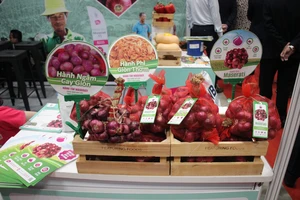
Vietnamese, Dutch experts discuss Mekong Delta’s sustainable aquaculture future
Representatives from the Vietnamese and Dutch public and private sectors gathered in Ho Chi Minh City on Wednesday to discuss the future of sustainable aquaculture in Vietnam’s Mekong Delta.
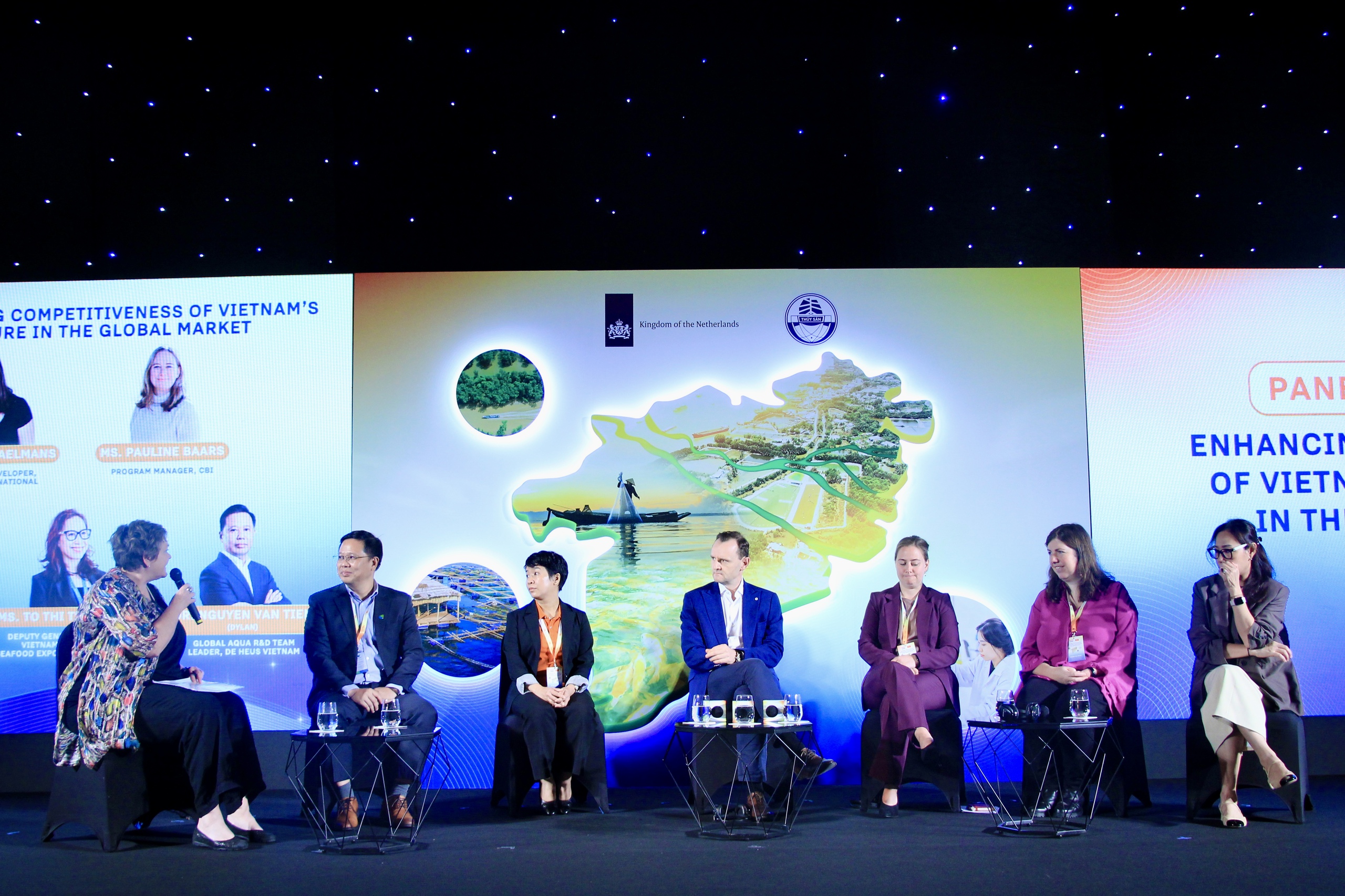
Dutch and Vietnamese panelists discuss enhancing the competitiveness of Vietnam’s aquaculture in the global market at the Vietnam – Netherlands business forum entitled 'Shaping the Future of Sustainable Aquaculture in the Mekong Delta' in Ho Chi Minh City, November 12, 2025. Photo: Dong Nguyen / Tuoi Tre News
At the Vietnam – Netherlands business forum entitled 'Shaping the Future of Sustainable Aquaculture in the Mekong Delta,' industry insiders highlighted developments and explored innovative, practical solutions for advancing the production and sustainability of aquaculture.
The discussions covered various aspects such as sustainable feed, animal welfare, export requirements and strategies, and how genetics can play a crucial role in improving sustainability, productivity, and resilience within the aquaculture systems.
The forum also featured two panel discussions bringing together industry experts from Vietnam and the Netherlands.
One focused on sustainable and responsible aquaculture in Vietnam, including an overview and update on the Aquaculture Stewardship Council, while the other explored ways to enhance the competitiveness of Vietnam’s aquaculture in the global market.
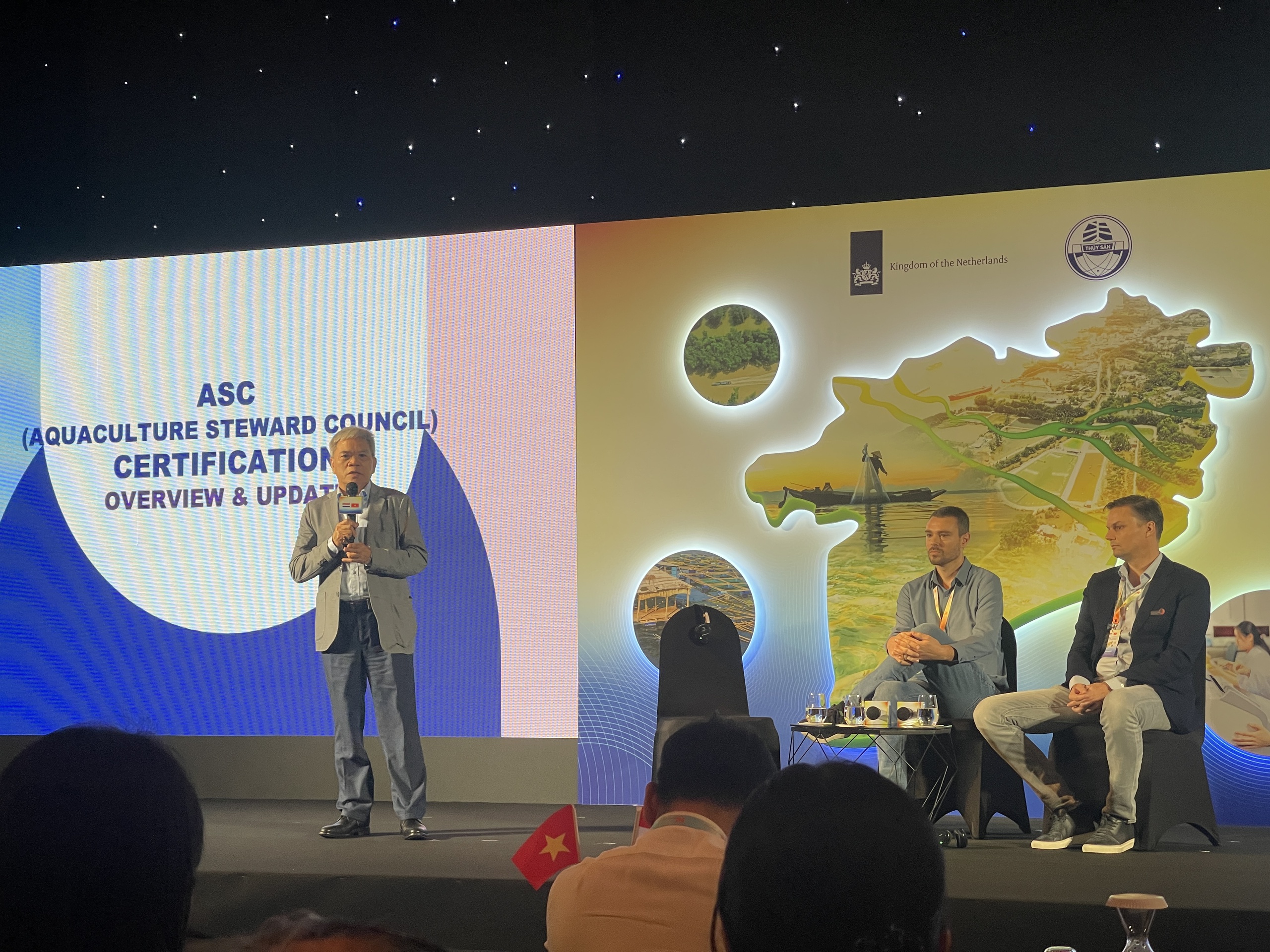
Dutch and Vietnamese panelists discuss sustainable and responsible aquaculture in Vietnam at the Vietnam – Netherlands business forum entitled 'Shaping the Future of Sustainable Aquaculture in the Mekong Delta' in Ho Chi Minh City, November 12, 2025. Photo: Dong Nguyen / Tuoi Tre News
Vietnamese fishery products reach 170 countries and territories worldwide, including major markets such as the U.S., China, Japan, and the EU, where the Netherlands is the EU’s largest importer.
As reported by the Agriculture Department of the Embassy of the Netherlands in Hanoi, Vietnam’s aquaculture sector benefits from a favorable geographical location and natural conditions, a competitive labour force, and a dense inland waterway transportation system.
It has a robust and established value chain, is undergoing a transition toward more sustainable practices, and continues to enhance value addition.
The sector also enjoys strong species diversification.
However, the sector still faces several challenges, including the limitations of smallholders’ dominance, traditional farming practices, and inconsistent harvest quality.
Other constraints include limited financial access, reliance on imported inputs, and the dominance of raw processed products.
Infrastructure weaknesses, technology gaps, and the loss of skilled labor also hinder its development.
Two delta countries’ cooperation for sustainable aquaculture
The Netherlands and Vietnam collaboration in the Mekong Delta goes back a long time, with two strategic partnerships signed on sustainable agriculture and food security as well on water management and climate change.
The two delta countries, which share similar challenges and opportunities, are working together to develop intelligent and integrated solutions that promote more sustainable, convenient, and efficient systems.
“Our goal is to jointly develop Vietnam’s aquaculture sector into a modern, efficient, and responsible industry that can proactively adapt to climate change and contribute to global food security,” Le Hong Phuoc, deputy head of the Research Institute for Aquaculture No. 2 stated in his opening remarks.
“Achieving this requires long-term collaboration and commitment from both governments, the business community, international organizations, and local people, grounded in a spirit of cooperation, sharing, and innovation."
For Aukje de Vries, Dutch Minister for Foreign Trade and Development, the Netherlands is more than just a trading partner to Vietnam.
“Over many years, we've built a strong and trusted partnership,” she noted in her speech at the event, "one that brings us together in two key areas: sustainable agriculture and food security; and water management and climate change.
“This partnership comes to life in the Mekong Delta, where Dutch and Vietnamese companies are working side by side to prepare its agriculture for the future.”
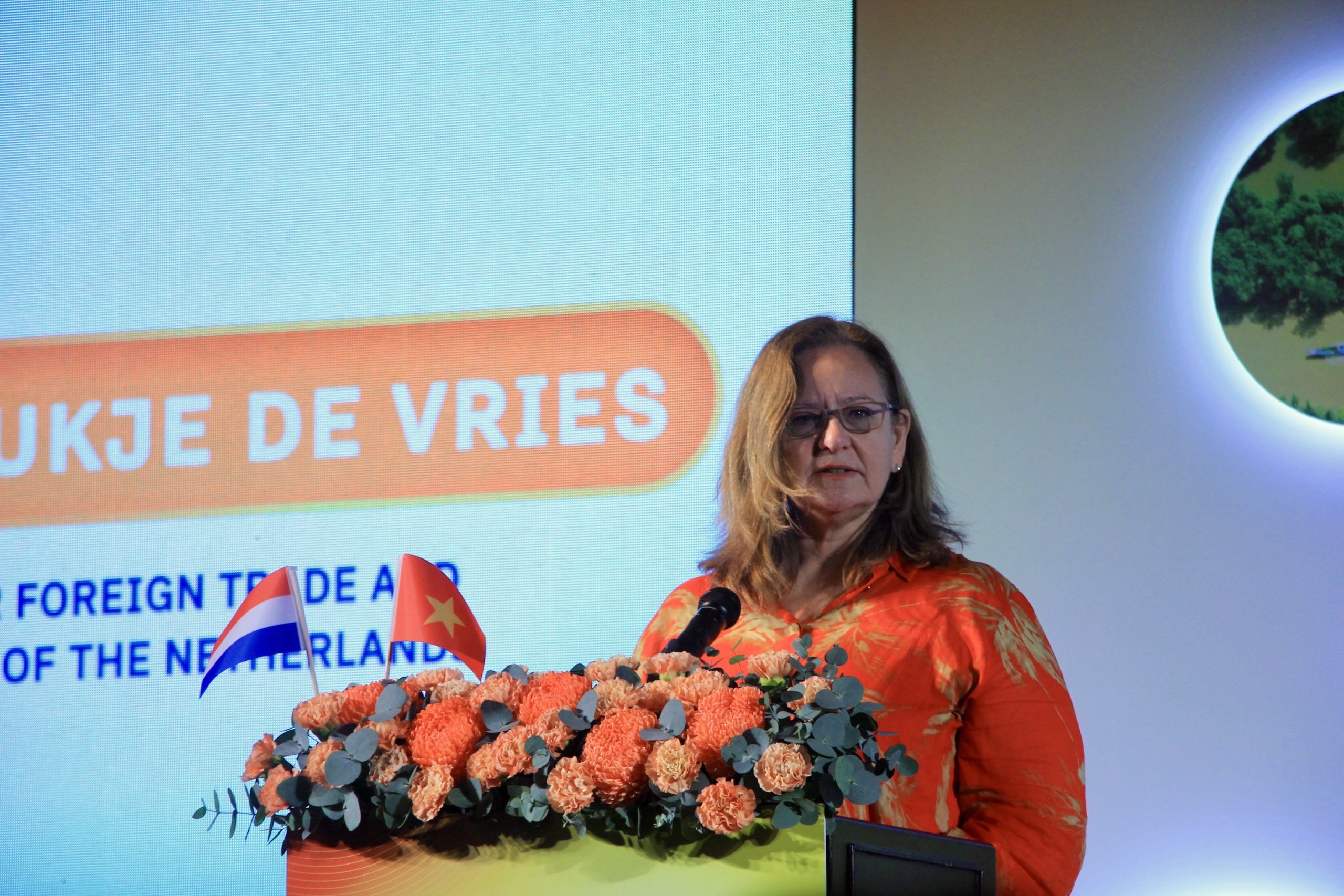
Aukje de Vries, Dutch Minister for Foreign Trade and Development, delivers her remarks at the Vietnam – Netherlands business forum entitled 'Shaping the Future of Sustainable Aquaculture in the Mekong Delta' in Ho Chi Minh City, November 12, 2025. Photo: Dong Nguyen / Tuoi Tre News
According to her, in just three years, the collaboration has already produced valuable results, boosting pangasius and shrimp farming and helping people make a better living across the delta.
And this is just the beginning.
“There's more we can do and more we should do,” she stated.
"Together, let's keep building strong partnerships that create lasting value for our economies.
“If we combine Dutch and Vietnamese expertise with a Vietnamese can-do mentality and strengthen our public-private partnerships, we can create smart solutions for the Mekong Delta and beyond.”
In 2022, the Combi-Track program on sustainable aquaculture in the Mekong Delta was launched, aiming to transform shared ambitions into practical, scalable solutions, with a focus on sustainable pangasius and shrimp farming.
It brings together Dutch and Vietnamese stakeholders — from government to business, farmers, to academia — to work out innovations that are not only technically sound, but also economically viable and environmentally responsible.
The forum also saw the launching moment of new Combi-Track projects, with focuses on welfare in aquaculture (DeltaCare Initiative), aquaculture genetics for sustainable shrimp and clam farming (AquaGene Vietnam), and mangrove integrated high-intensity Vannamei farming (Tomgoxy Zero).

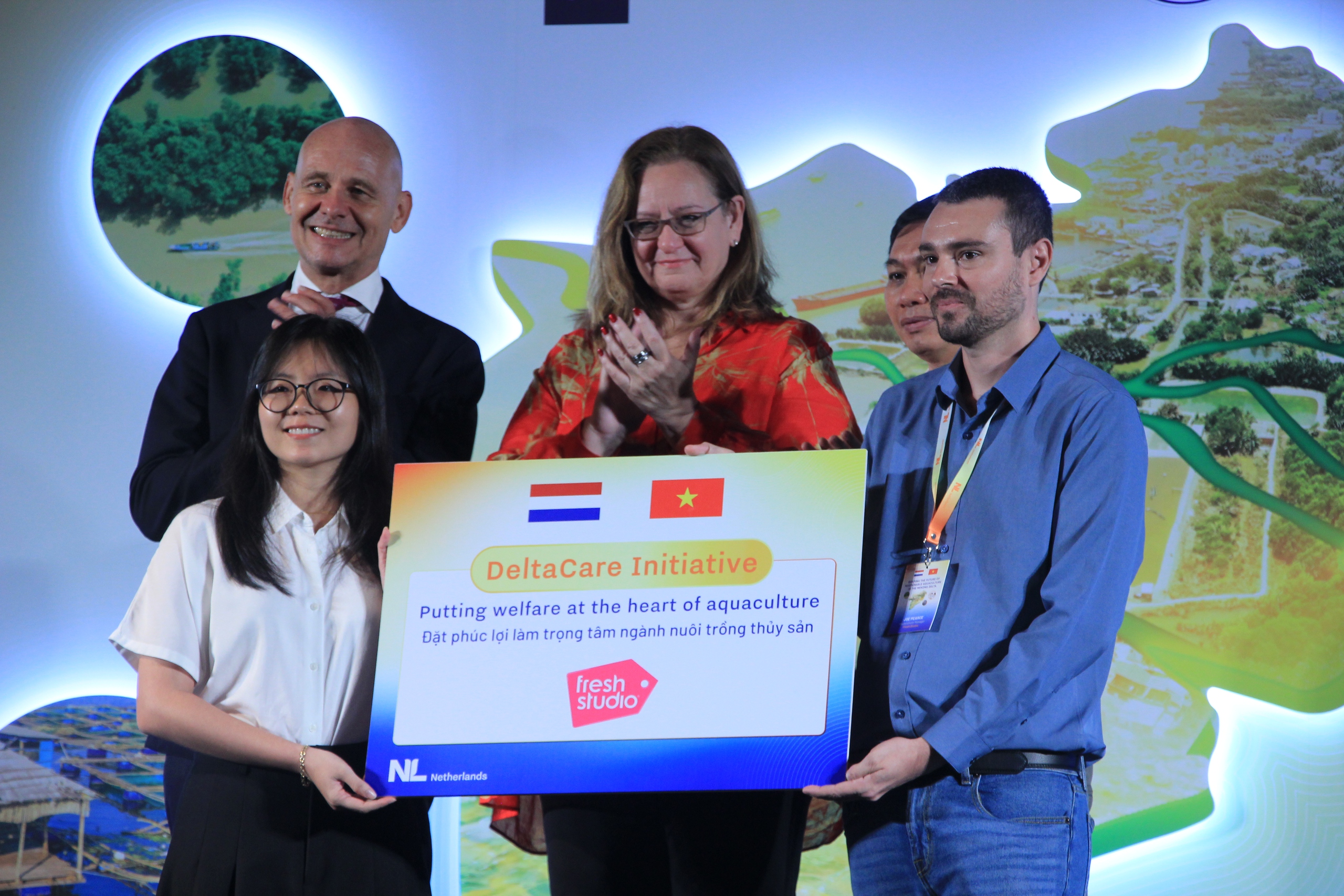
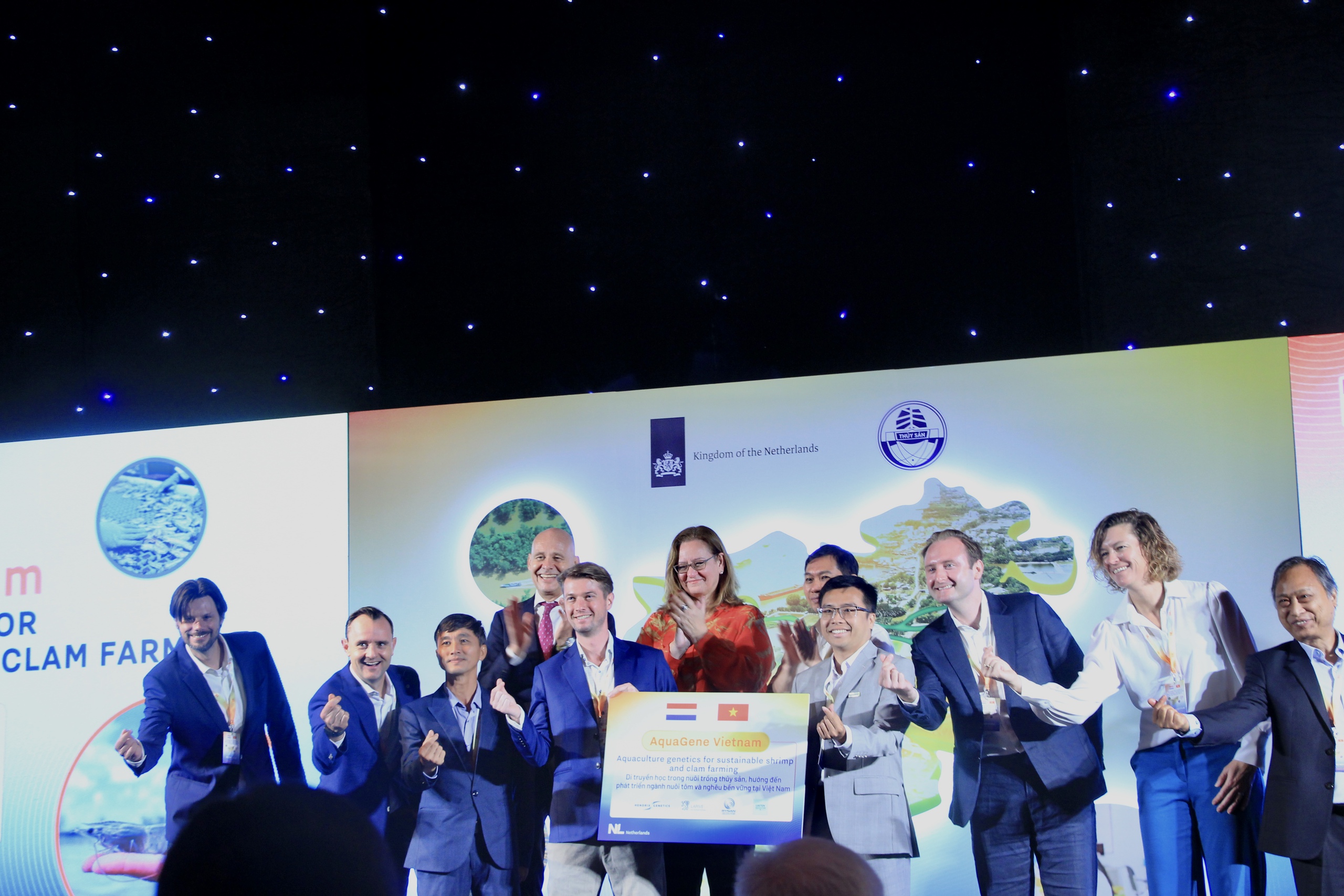
The launching moment of three new Combi-Track projects at at the Vietnam – Netherlands business forum entitled 'Shaping the Future of Sustainable Aquaculture in the Mekong Delta' in Ho Chi Minh City, November 12, 2025. Photo: Dong Nguyen / Tuoi Tre News
“It is clear that Vietnam's aquaculture sector holds great potential,” Natalie den Breugom-de Haas, deputy director of the Sustainable Economic Development Department under the Dutch Ministry of Foreign Affairs, spoke while concluding the forum.
According to her, the forum brought valuable conversations in which the importance of sustainability stood out.
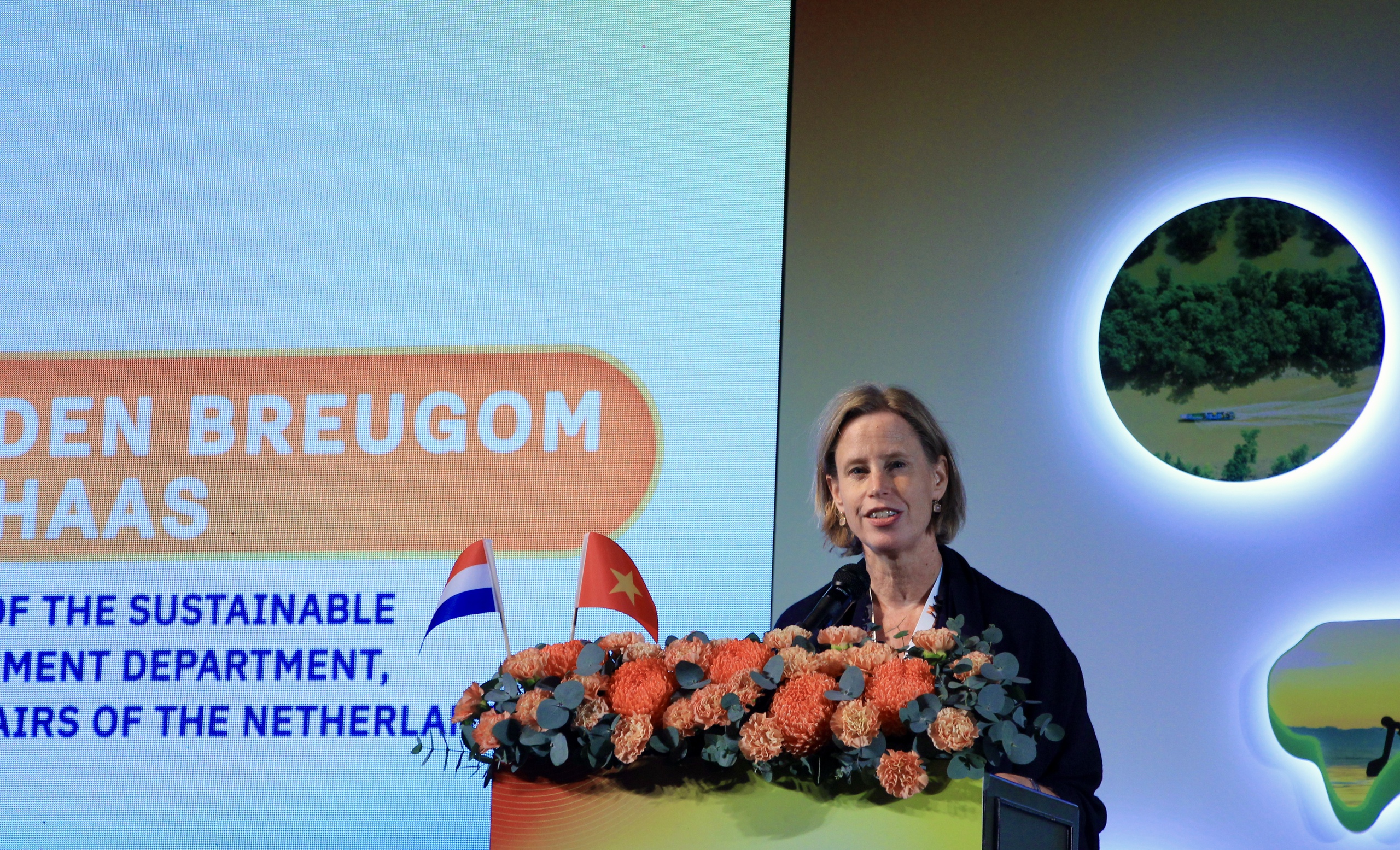
Natalie den Breugom-de Haas, deputy director of the Sustainable Economic Development Department at the Dutch Ministry of Foreign Affairs, speaks at the Vietnam – Netherlands business forum entitled 'Shaping the Future of Sustainable Aquaculture in the Mekong Delta' in Ho Chi Minh City, November 12, 2025. Photo: Dong Nguyen / Tuoi Tre News
“As a trusted partner of Vietnam, we are committed to working closely with all stakeholders, government, businesses, knowledge institutions, and communities alike,” she said.
“To share knowledge, develop innovations, and support sustainable growth, we recognize that success requires cooperation, patience, and ongoing dialogue with openness and respect.”
Dong Nguyen / Tuoi Tre News
Link nội dung: https://news.tuoitre.vn/vietnamese-dutch-experts-discuss-mekong-deltas-sustainable-aquaculture-future-103251113135935427.htm
